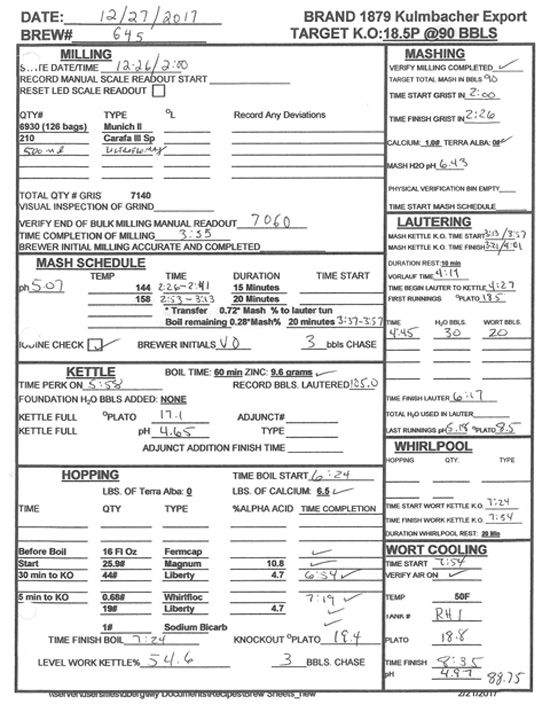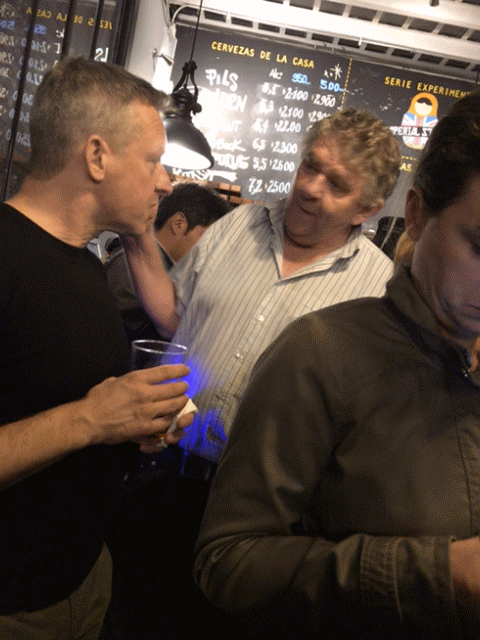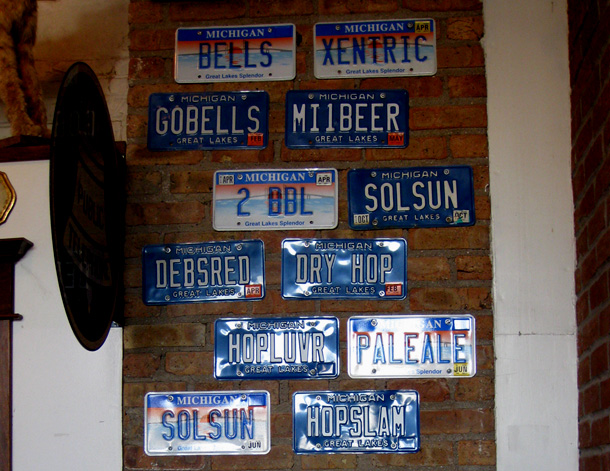Ron Pattinson posted a bit of history Thursday about lagers from Barclay Perkins, plus a recipe for 1932 Draught Lager. And Kristen England added notes about brewing the version from Bent Distillery he’ll pour April 22 in St. Louis at LagerFest.
Cool stuff. Also this week, I’ve been trading email with other brewers about the lagers they made for the event. More cool stuff. But the highlight of the week was discovering that the Bolzen Beer Band has been added to the program. Only the addition of Brave Combo and some sort of battle of the alternative polka bands could make it better. They might bring down the brick walls at Urban Chestnut Brewing Company.

Pattinson provided most, but not all, the recipes used to make the beers that will be served. Here’s the log from the December day that August Schell Brewing in Minnesota brewed an 1879 Kulmbacher Export. When I asked David Berg at Schell’s why he picked this particular recipe he replied, “My love for Oberfranken.” Although the recipe targets 80 IBU this beer is closer to the high 40s and “pretty dang bitter.”
For further reading he suggests digging into “Beer Brewing in Bamberg, 200 Years Ago.”
 Somehow, Uwe Kalms occasionally managed to get a word in edgewise during an evening at Krossbar Bellavista in Santiago, Chile. They hosted judges and speakers for
Somehow, Uwe Kalms occasionally managed to get a word in edgewise during an evening at Krossbar Bellavista in Santiago, Chile. They hosted judges and speakers for 